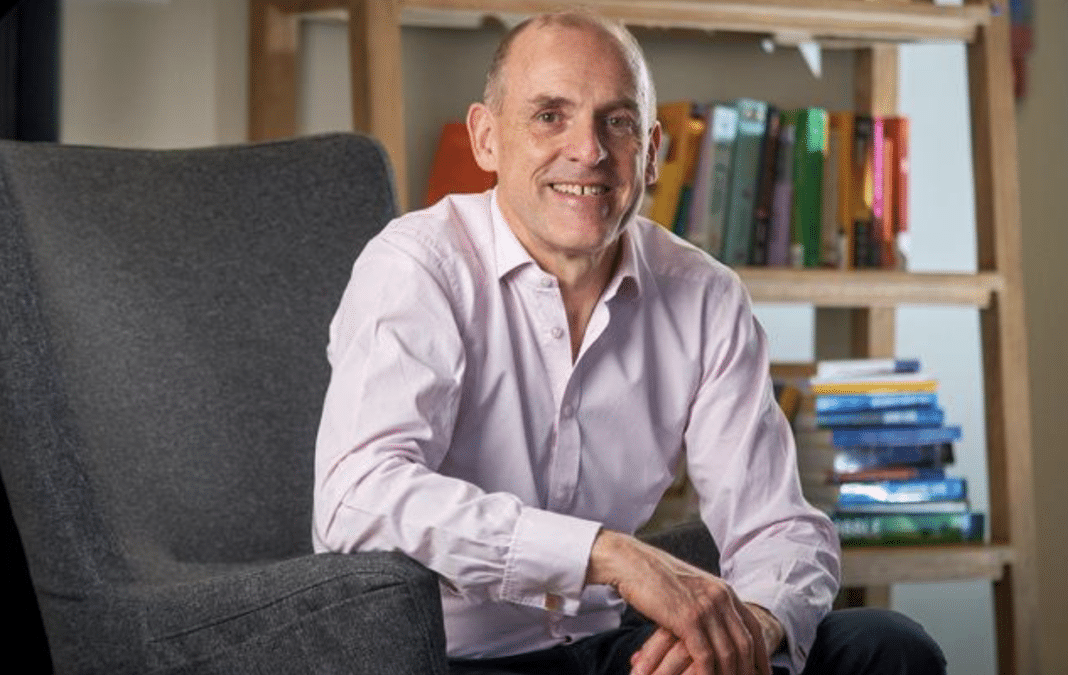Paul Pester, chairman of Tandem Bank and a long-time veteran of the U.K. financial industry, has a balanced perspective on the ups and downs of leading a bank.
“When you first become a CEO, the stress that comes with that is quite significant. We all have imposter syndrome. When you first become a chairman of a bank, you have imposter syndrome,” says Pester, sharing advice that he gives to young MBA students and entrepreneurs.
“If you choose to take on a high level executive role, you’re putting yourself in ‘harm’s way’ when it comes to your mental health, whether you like it or not, because at some point, something is going to happen in your career that’s going to put an immense strain on you. How prepared are you as an individual for that? I always end up making the analogy with sport and say, ‘If I told you that in five years’ time you’re going to run a marathon, you would probably start doing a bit of training for it. At least you might buy a pair of running shoes.’”
The Marathon of Banking Leadership
Pester’s analogy between marathon preparation and gearing up for a banking career highlights the demands placed on leaders in the financial sector, an industry characterised by rapid change, high stakes, and intense scrutiny.
The stress associated with leading a bank, navigating financial crises, and driving technological innovation can be immense. Paul Pester believes that anticipating these challenges and developing coping strategies is essential for sustained performance and well-being. It’s a belief that’s served him well over the course of a career that’s seen him do everything from build large banks from the ground up and innovate digital banking strategies to manage initial public offerings and mergers, found fintechs, and scale businesses internationally.
Pester’s tenure as the first group CEO of Virgin Money launched that business in both the U.K. and Australia. His foresight into digital banking’s potential set the stage for what would become a defining feature of modern money services.
After Virgin, he continued to develop and lead digitization efforts at Lloyds TSB, and later at Lloyds Banking Group.
As the first CEO of TSB Banking Group, Pester led the institution through its creation, successful IPO on the London Stock Exchange, and subsequent sale to the Spanish banking group Sabadell.
Pester has since founded Loop, a money-sharing fintech app designed to resonate with Generation Z and millennial users who can benefit from microloans to avoid bank overdraft fees.
Pester was appointed chair of Tandem in 2022, and together with Alex Mollart, the CEO, has steered the bank through a significant shift toward focusing on environmentally friendly, online-only banking. This strategic pivot aims to support the U.K.’s transition to a more sustainable, low-carbon lifestyle. During this period, Tandem, one of the country’s original challenger banks, has experienced notable growth and achieved profitability for the first time in 2023.
In addition to his role at Tandem, he serves as a non-executive director of the National Bank of Bahrain and co-founded the fintech accelerator Archie, working to help scale startups and bring banking innovation to the U.K., Australia, and the Middle East.
Pester’s wide-ranging career trajectory is perhaps not the traditional path for banking leaders — he even began with a background in academic physics — but the throughline is an enthusiasm for new technologies and problem-solving. Throughout, he’s continued to stress balancing this enthusiasm and the pervasive long hours of the banking industry with realistic expectations and stress management.
“When you go off and work for McKinsey, Goldman Sachs, start your own fintech, or go and work in a big bank, you need to prepare for what is probably going to be a stressful environment,” says Paul Pester.
“There are mechanisms I’ve used for 30 years of ‘thought-catching’ — how to identify within your own mind when you are under stress, and when you are seeing issues, or when thoughts are coming into your mind that if left uncontrolled, will spiral out of control and lead to stress. You identify them and say, ‘I know where this thought is going to take me and actually I’m not going to allow it to control things.’ Every time I talk to young people, that’s really high up on the list.”
Balancing Work and Well-Being
A recent report found that in the U.K. alone, the financial services sector can lose over 15 million working days a year due to stress, depression, and anxiety. A significant 62% of firms reported an annual increase in mental health-related illnesses in the workplace. This trend underscores a pressing need for organisations to address mental health proactively.
The toll of working in high-pressure environments isn’t limited to traditional banking roles but extends to the dynamic and uncertain world of technology and finance entrepreneurship. Startup founders and tech entrepreneurs often operate under extreme pressure to innovate, secure funding, and scale their businesses rapidly.
Encouraging a culture that supports mental health awareness and an environment where mental health is openly discussed and addressed can help prevent stress from escalating into more serious conditions and foster a more supportive and productive workplace.
“I think it’s underrated. People talk about mental health when they have an issue, but they don’t talk about preparing for it and they don’t talk about investing and training in the same way we talk about investing and training in any sort of sports activity or anything else we do,” says Paul Pester.
“We don’t do that. It’s very rare for people to do that when it comes to their mental health and well-being. I would definitely be up there on a platform saying, ‘Start doing it’ to every single person who’s in their early 20s, late 20s, early 30s, because if they don’t, they really could be putting themselves unequipped for a really difficult situation down the road.”





